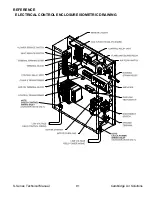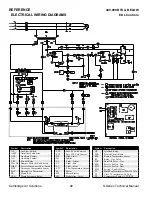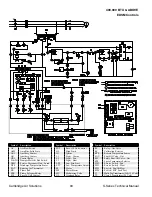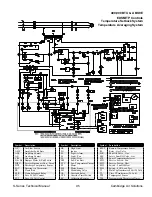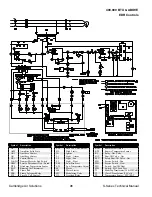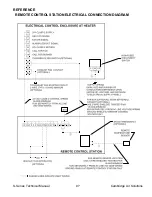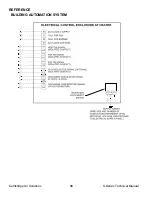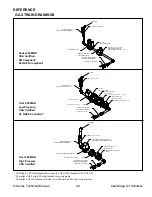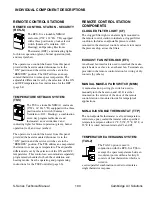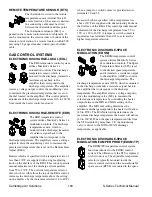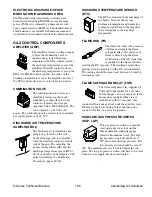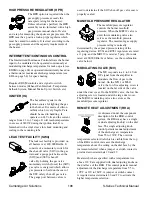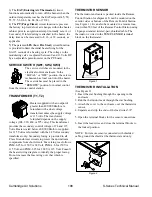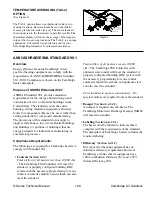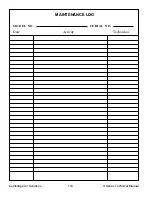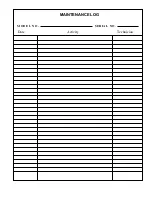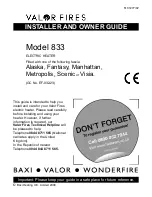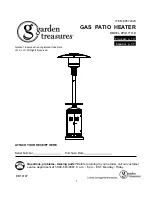
S-Series Technical Manual
105
Cambridge Air Solutions
ELECTRONIC DISCHARGE-SPACE
MODULATION/HAZARDOUS AREA
The Hazardous Area temperature control system
functions identical the EDSM/TP, except the space
sensor (TS244A) is replaced by a space sensor with
epoxy coated circuitry (ES225A). The standard remote
control station is not suitable for hazardous areas and
would need to be mounted outside of the hazardous area.
GAS CONTROL COMPONENTS
AMPLIFIER (AMP)
The amplifier creates a voltage output
to drive the modulating valve to
maintain the selected discharge
temperature. On EDL control systems,
the discharge temperature is set at the
amplifier. On EDR control systems,
the discharge temperature is set on the
RHA. On EDSM control systems, the range of the
discharge temperature is set at the amplifier, however,
the STS controls when more or less heat is required.
COMBINATION VALVE
The combination valve serves as a
manifold pressure regulator and
redundant gas shut-off valve. This
control is typically used for gas
capacities below 400,000 Btu/hr. The
valve operates on 24 Volts AC
power. The combination valve is rated for a maximum
gas supply pressure of 14” WC.
DISCHARGE AIR TEMPERATURE
SAMPLING BOX
The discharge air temperature sam-
pling box is located on the side
of the discharge, and is accessible
from the electrical control enclosure
side of the unit. The sampling box
houses the high limit (HL) and the
discharge temperature sensor (DTS).
This box should not be tampered with
unless performing the Calibration
Procedures (pages 60–62).
DISCHARGE TEMPERATURE SENSOR
(DTS)
The DTS is mounted in the discharge of
the heater. It senses the average
discharge temperature and transmits a
resistance signal back to the amplifier
that corresponds to the discharge
temperature.
FLAME ROD (FR)
The flame rod senses the presence
of flame and signals the flame
safeguard relay. The presence of
flame is detected by the flame
rectification of the AC signal that
is supplied to the flame rod thus
creating the DC response. The resulting current flow
produced can be measured with a DC microammeter.
The reading should be steady and between 2.0 and 6.0
microamps (
m
A
)
.
FLAME SAFEGUARD RELAY (FSR)
The flame safeguard relay supplies 24
Volts AC to the igniter for 4 seconds
before the gas valve is energized. If the
burner does not light (flame is not
established within 7 seconds), this
control will lock out gas flow until the control is reset.
If flame signal is lost during burner operation, the
control will allow one retry for ignition.
HIGH/LOW GAS PRESSURE SWITCH
(HGP, LGP)
This gas pressure switch is a manual
reset safety device to lock out the
burner operation should large gas
pressure fluctuations occur. The high
gas pressure switch should be set 3”
WC above manifold gas pressure. The
low pressure switch should be set at 2”
WC. The adjustment screw is located under the top
plate. The low gas pressure switch will have to be reset
whenever gas supply has been interrupted.

